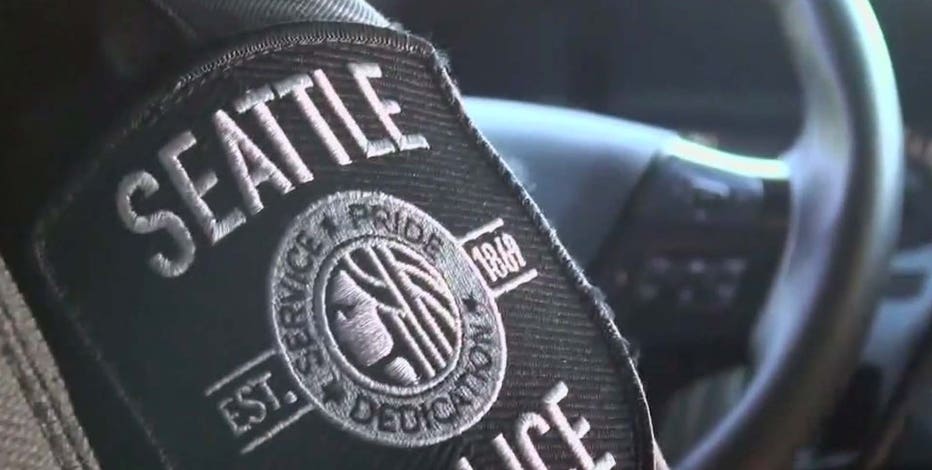SPD Union president: City underreporting officer loss, alternative policing needs collective bargaining
SPD Union president says city underreporting officer loss, alternative policing needs collective bargaining
The president of the union representing Seattle police officers says the city is not being "accurate" with the public about the rate depletion rate of officers leaving the department and warned any "alternative policing" model is subject to collective bargaining.
SEATTLE - The president of the union representing Seattle police officers says the city is not being "accurate" with the public about the rate depletion rate of officers leaving the department and warned any "alternative policing" model is subject to collective bargaining.
Seattle Police Officer’s Guild (SPOG) President Mike Solan tells FOX 13 that the true number of officers that have left the department in the first four months of the year is 59.
During an April 26 committee meeting with Seattle City Council members, Interim Police Chief Adrian Diaz said that number was 43, not 59. He also said that had been 13 new hires in 2022.
Seattle Police has budget approvals to hire 125 new officers in 2022, but Diaz told the council that he’s projecting 98 hires in 2022. Solan says his information indicates there will likely be 50 new hires.
"I’m not sure that our community is being told accurate numbers outside of what SPOG is providing," Solan said.
He said his information indicates the department will lose 173 officers this year. Seattle Police had been estimating 125 that will leave the department.
"Our public needs to be informed on how desperate we are to continue providing 911 service, just on a basic level," Solan said.
FOX 13 sent an outline of Solan’s comments and numbers to the office of Mayor Bruce Harrell and Council Member Lisa Herbold, who chairs the Public Safety Committee that oversees SPD policies. We have not heard a response.
The timing of Solan’s comments comes before several important votes next week by Herbold’s committee.
The city estimates a salary savings between $4.1 to $4.5 million because the SPD won’t hit its hiring goal of 125 officers. That number could be higher if SPOG’s hiring projections are accurate.
The Council committee will consider a resolution by Council Member Sara Nelson to use the savings to fund hiring and retention incentives for SPD. Herbold is offering a proposal to use $635,000 to fund moving costs for officers who are hired.
The negotiations between council members and the Mayor’s office have been going on all week and could result in a proposal that would be acceptable to all sides.
Harrell has been on the sidelines during the weeks-long debate on hiring and retention bonuses. A possible incentive plan could be made public in early summer.
His spokesperson, Jamie Housen, said Harrell will provide details of his own plan by early summer and it "will want to draw from SPD underspend."
During the April 26 meeting, Council Member Teresa Mosqueda expressed an intent to hold the salary savings over into the 2023 budget for other uses, citing data that showed hiring incentives may or may not work.
"I have questions about using critical public resources for a possible investment in a policy that has not yet been proven," she said.
"I think some of this is political," Solan said about the city’s providing "accurate" numbers on SPD’s depletion rate.
"That’s why we would try to circumvent politics and give the community accurate, non-political numbers so they really understand how serious this situation is," he said.
Solan also said "alternative policing" that many members of the City Council and the Mayor have talked about may be subject to collective bargaining.
"The reality is there is no definition outside of saying, ‘we want an alternative to armed response,’" he said. "That’s OK, but now we are getting into the waters of body of work from the union perspective."
A new development that could lengthen contract negotiations is now underway between SPOG and the City of Seattle.
Solan says duties that historically have been performed by patrol officers that would go to someone else should be part of the bargaining process.
"We are more than willing to sit down with the City and bargain what alternative forms of policing looks like when you compare it to the history of work of the police officers of this union," he said.
Housen said the Mayor’s Office "cannot discuss specific bargaining elements of SPOG negotiations as they are ongoing."


